People often say they’re "allergic" to a drug because they got sick after taking it. Maybe they felt nauseous after aspirin, broke out in a rash after amoxicillin, or got dizzy on a new blood pressure pill. But here’s the truth: most of these aren’t allergies at all. In fact, only 5 to 10% of reported drug reactions are true immune-mediated allergies. The rest? Side effects. And mixing them up can cost you - in money, treatment options, and even your health.
What’s Really Going On?
A true drug allergy means your immune system sees the medicine as an invader. It produces antibodies - usually IgE - that trigger inflammation. That’s why symptoms like hives, swelling, trouble breathing, or anaphylaxis happen. These aren’t just unpleasant; they can be deadly. A side effect is different. It’s a direct result of how the drug works in your body. For example, antibiotics kill bacteria - but they also mess with your gut flora. That’s why nausea and diarrhea are common. It’s not your immune system attacking. It’s the drug doing what it’s supposed to do… just in the wrong place. Think of it like this: If you take a painkiller and your stomach hurts, that’s a side effect. If you take the same pill and your throat swells shut within minutes, that’s an allergy. One is predictable. The other is dangerous.Timing Matters More Than You Think
When symptoms show up tells you a lot. If you break out in hives or feel dizzy within 10 to 60 minutes after taking a pill - especially if it’s your first time taking it - that’s a red flag for an IgE-mediated allergy. These reactions are fast, sharp, and often involve more than one system: skin + breathing + stomach all at once. Delayed reactions are trickier. A rash that shows up 7 to 14 days after starting a drug? That’s often T-cell mediated. It’s still an immune response, so it counts as a true allergy. Conditions like DRESS (Drug Reaction with Eosinophilia and Systemic Symptoms) or Stevens-Johnson Syndrome fall here. These are rare but serious. They can damage organs and need immediate medical care. Side effects? They usually show up fast too - but they don’t get worse with repeated doses. If you get nauseous on the first day of antibiotics and it fades by day three, that’s a side effect. If you get hives every single time you take amoxicillin, even after years of no reaction, that’s an allergy.Symptom Patterns: One System vs. Multiple Systems
Side effects usually stick to one system. Nausea? That’s gut. Headache? That’s brain. Dizziness? That’s inner ear or blood pressure. True allergies? They rarely stay put. You’ll often see two or more systems reacting together. Skin rash + swelling in the lips + wheezing + vomiting? That’s not a side effect. That’s an immune system going into overdrive. A 2023 analysis of 10,000 patient records found that 87% of true drug allergies involved at least two organ systems. Only 22% of side effects did. That’s a huge clue. Here’s the most common mistake: people think nausea = allergy. It’s not. A 2022 JAMA Internal Medicine study found that 68% of people who claimed a penicillin allergy because they got sick to their stomach were wrong. They had a side effect. They didn’t need to avoid penicillin for life. But because they thought they were allergic, they were given stronger, costlier, and riskier antibiotics instead.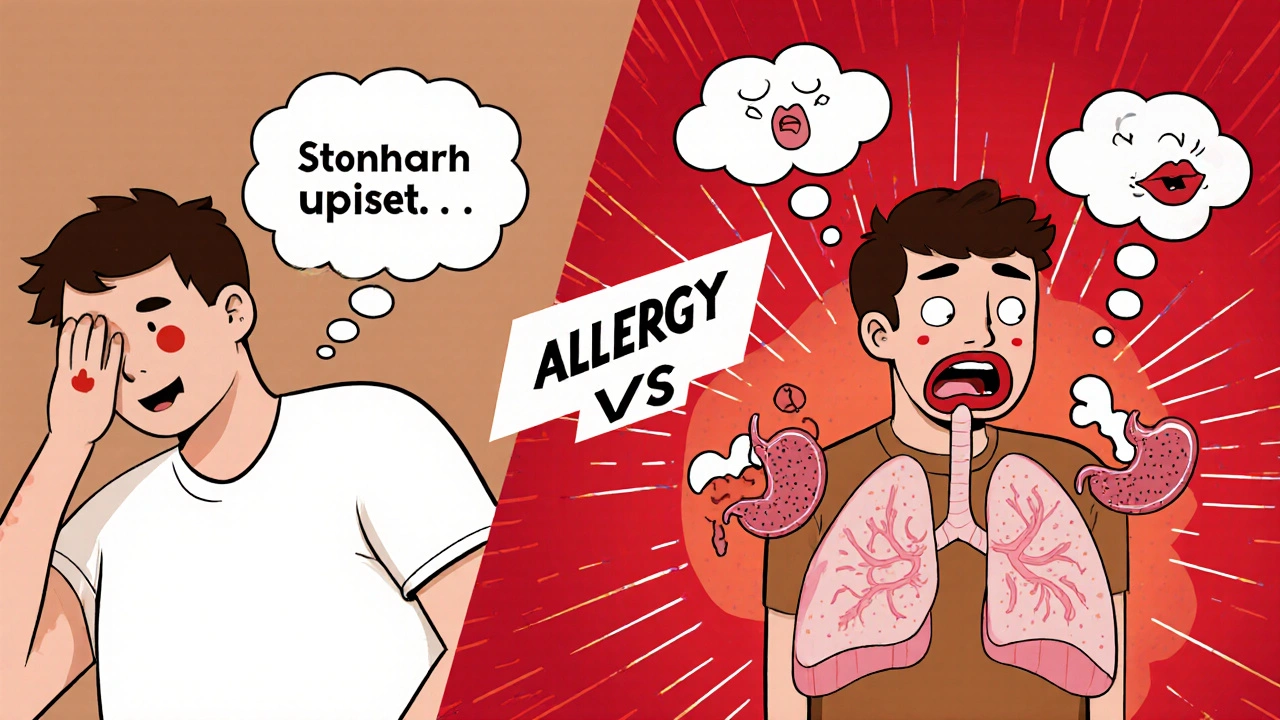
What Happens When You Get It Wrong?
Mislabeling a side effect as an allergy has real consequences. About 7% of Americans say they’re allergic to penicillin. But when tested properly, 90 to 95% of them aren’t. That means millions of people are avoiding one of the safest, cheapest, and most effective antibiotics on the planet. Why does that matter? Because when doctors can’t use penicillin, they turn to alternatives like vancomycin or fluoroquinolones. These drugs are broader-spectrum, meaning they kill more types of bacteria - including good ones. That increases your risk of C. diff infection, a nasty gut bug that causes severe diarrhea and can be fatal. One 2022 JAMA Network Open study showed patients with mislabeled penicillin allergies had a 69% higher chance of getting C. diff and stayed in the hospital 30% longer. There’s also a financial cost. The CDC estimates that incorrect penicillin allergy labels add $1.1 billion to U.S. healthcare costs every year. That’s because those alternative antibiotics cost more - and they often require longer hospital stays. And here’s the kicker: avoiding penicillin doesn’t make you safer. It makes you more vulnerable.How Do You Know for Sure?
You don’t guess. You get tested. For immediate reactions - like hives or anaphylaxis - skin testing is the gold standard. A tiny amount of the drug is placed under your skin. If you react, it’s an allergy. This test is 95% accurate for penicillin. If you had a delayed rash or suspect a T-cell reaction, doctors may use patch testing or blood tests like the Penicillin ImmunoCAP, which was FDA-approved in 2023. It detects specific IgE antibodies with 97% sensitivity. Drug challenges - where you’re given a small, controlled dose of the drug under supervision - are also used when testing isn’t available or inconclusive. These are safe when done by trained professionals. The key? Don’t rely on memory. People remember only about 55% of their reaction details after five years. If you were told you were allergic as a kid because you got a rash, that doesn’t mean it’s still true.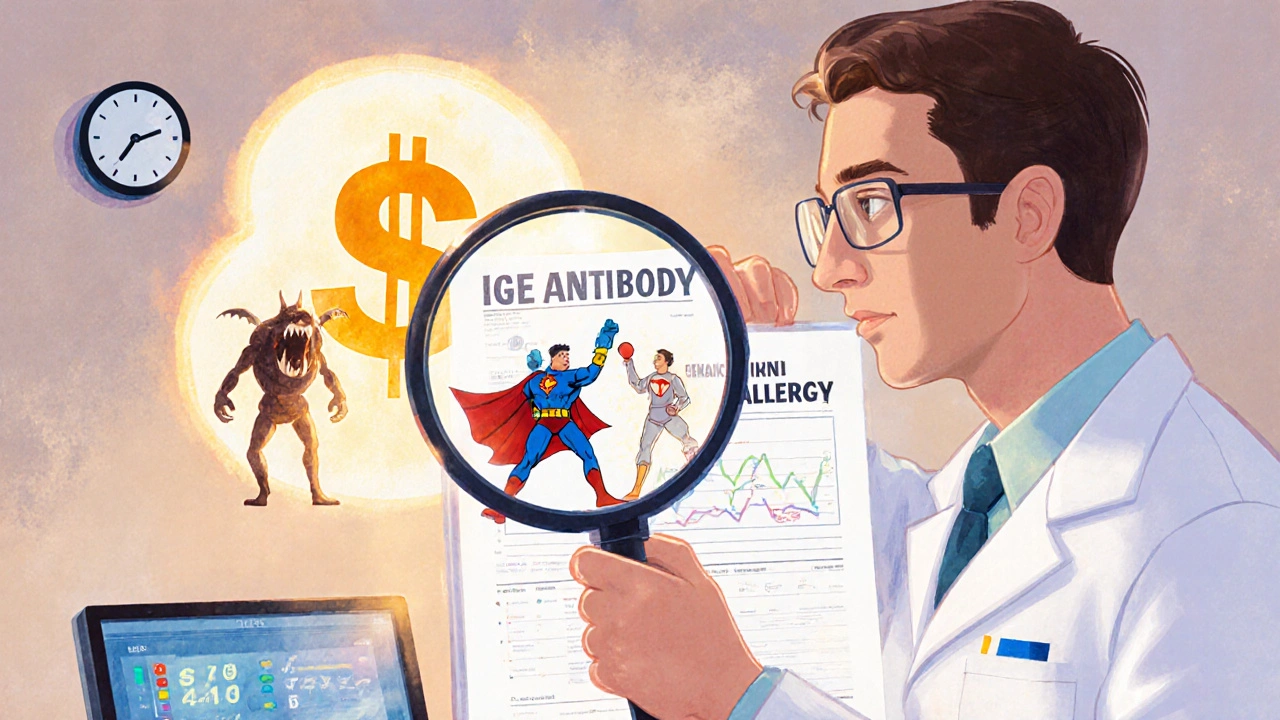
What Should You Do?
If you’ve been told you have a drug allergy:- Write down exactly what happened - symptoms, timing, how long it lasted.
- Don’t assume it’s still true. Many allergies fade over time.
- Ask your doctor if you should be referred to an allergist for testing.
- If you’ve avoided a drug for years because of a vague reaction, get evaluated. You might be able to use it safely again.
- Read the side effect list. Nausea, fatigue, dizziness? That’s normal.
- Watch for hives, swelling, trouble breathing, or a rash that spreads quickly. Call your doctor immediately if you see these.
- Don’t self-diagnose. Just because you felt bad doesn’t mean you’re allergic.

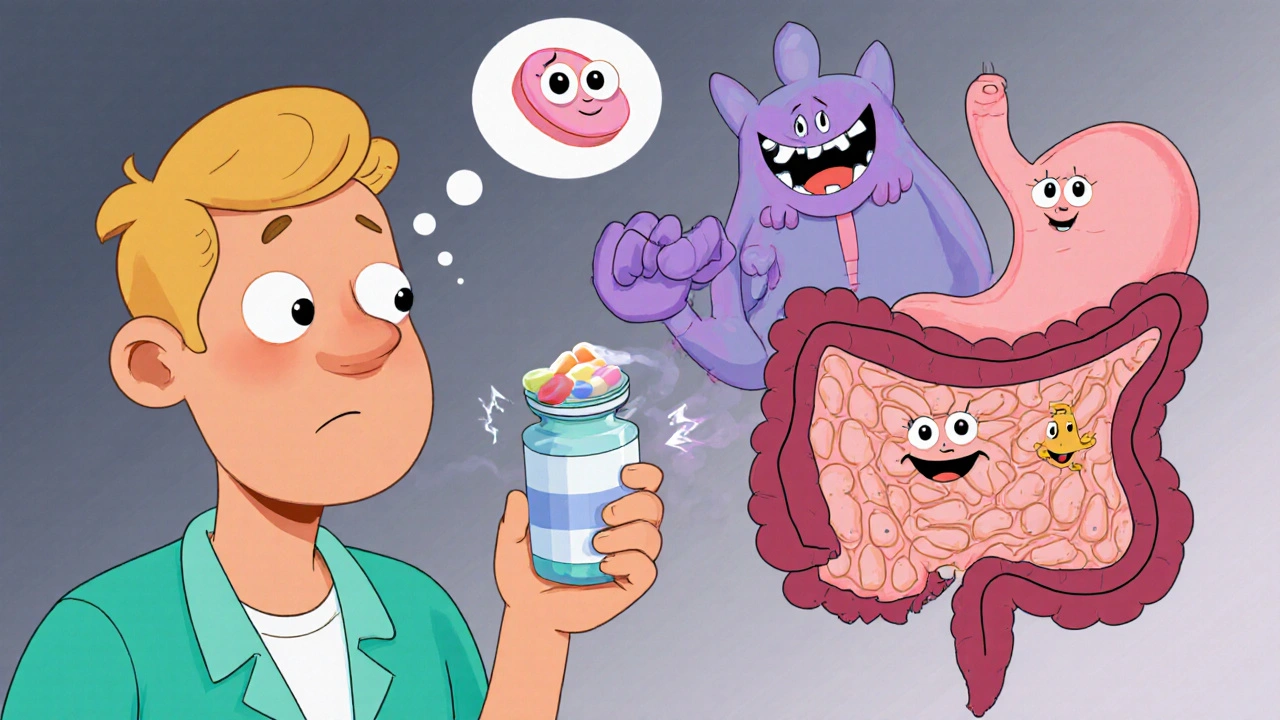

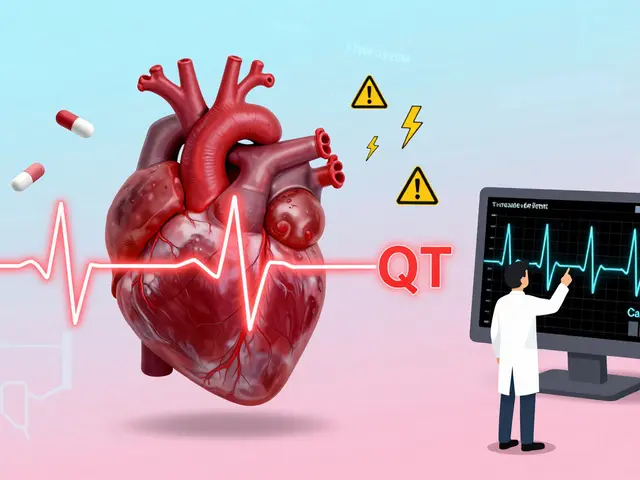

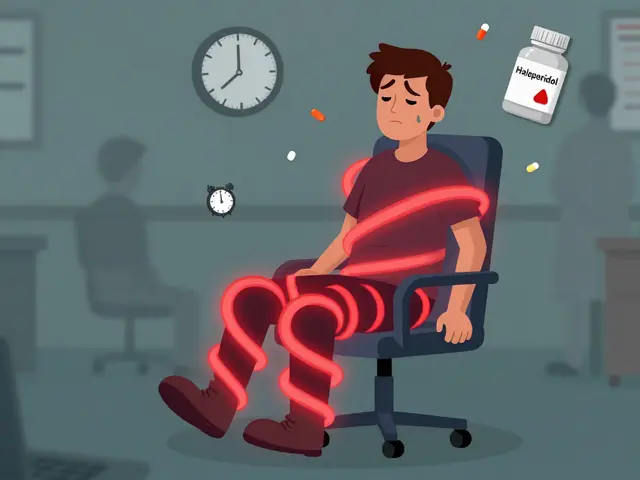
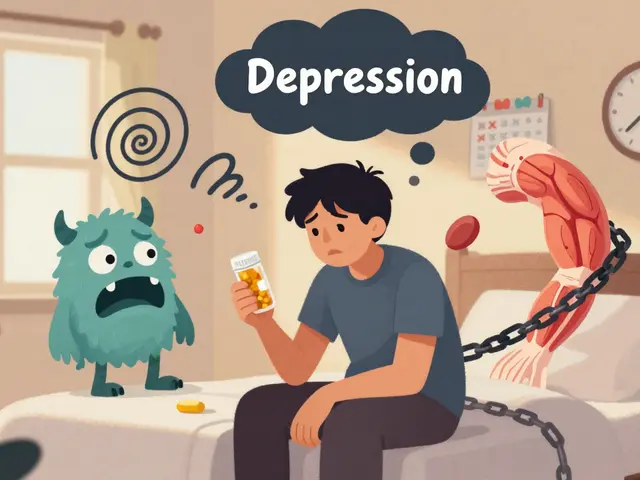
9 Comments
This is SO important 😍 I used to think I was allergic to ibuprofen because I got a tummy ache-turns out I just have a sensitive stomach. Got tested last year and now I can finally take it without fear. Life changed. 🙌
The distinction between pharmacological side effects and immune-mediated hypersensitivity is clinically fundamental. Misclassification leads to suboptimal therapeutic outcomes and increased healthcare expenditure. The data cited here are robust and warrant widespread public education.
lol so now we gotta get a phd just to take a pill? smh. i got sick after penicillin when i was 5 and now im supposed to trust some lab test? nah bro. if it made me barf once, its poison. america is so soft
Let me guess-the pharmaceutical giants pushed this narrative to sell more expensive antibiotics. Who funds these 'allergy de-labeling programs'? Big Pharma? Of course they are. The FDA's new labeling rules? A distraction. They don't want you knowing how many 'side effects' are actually hidden adverse reactions they buried in fine print.
Interesting. But honestly, who has time to go to an allergist? In India, even getting a basic prescription is a 3-hour ordeal. We just avoid the drug and move on. Testing? Luxury. 🤷♂️
The immunological mechanisms here are critical to delineate: IgE-mediated immediate hypersensitivity (Type I) versus T-cell-mediated delayed reactions (Type IV). The former is anaphylactoid in presentation, while the latter involves cytokine cascades and eosinophilic infiltration. Misattribution of these pathways leads to inappropriate avoidance behaviors. The 2023 ImmunoCAP validation is a landmark in diagnostic precision. We must advocate for primary care integration of these tools.
I love this post! My mom was labeled penicillin-allergic for 40 years until she got tested-turned out she just got a rash from a virus she had at the same time. Now she takes it like it’s candy. So glad we’re finally fixing this mess 💪
We live in a world where people mistake discomfort for divine warning. A stomachache isn't a sign from the universe-it's biochemistry. The irony? We've replaced superstition with algorithmic medicine, yet still cling to emotional narratives as truth. 🧠🕯️
This is a wake-up call!!! I’ve been avoiding amoxicillin since I was 8 because I ‘got sick’-turns out I had the flu! Now I’m telling everyone: DON’T assume! Get tested! Your life-and your wallet-will thank you!!!!!